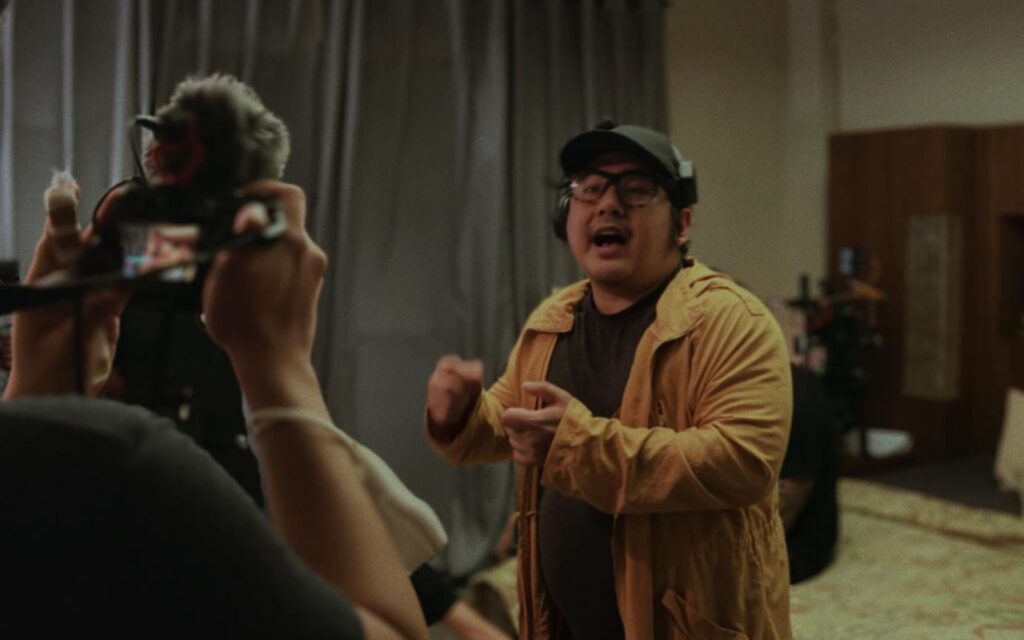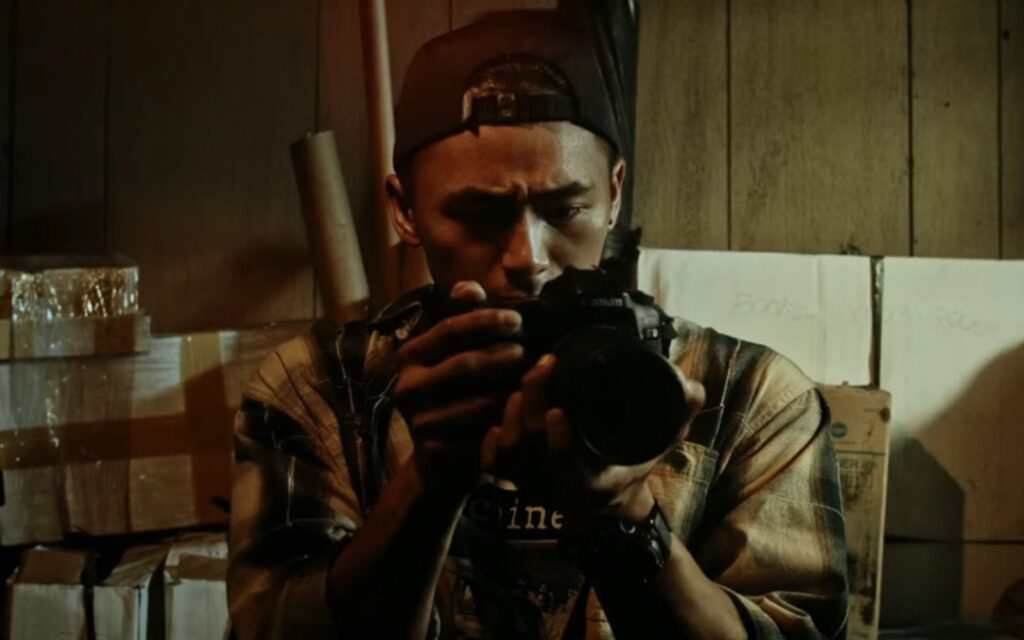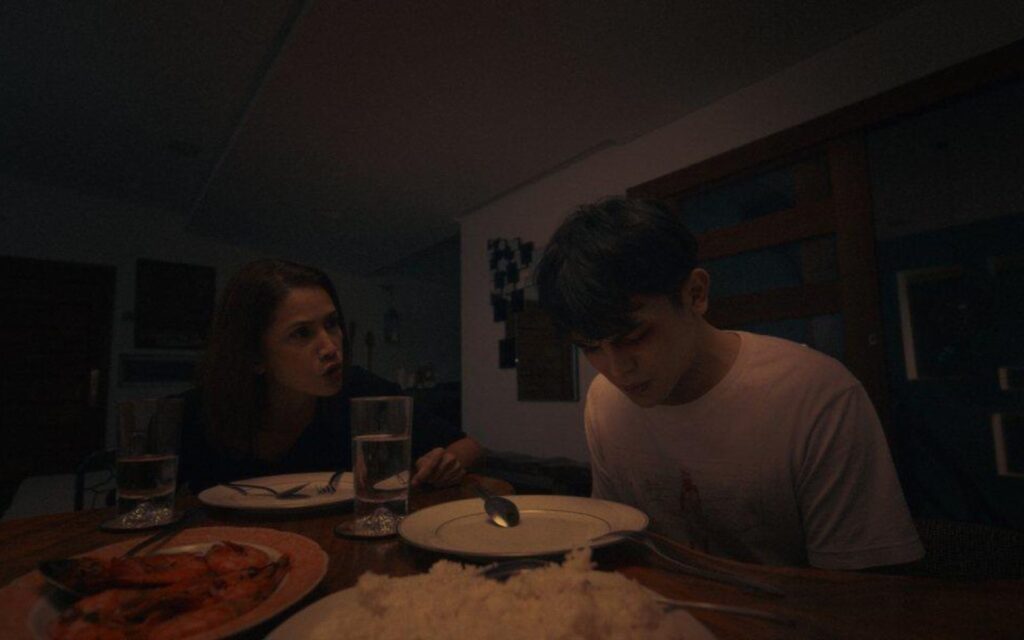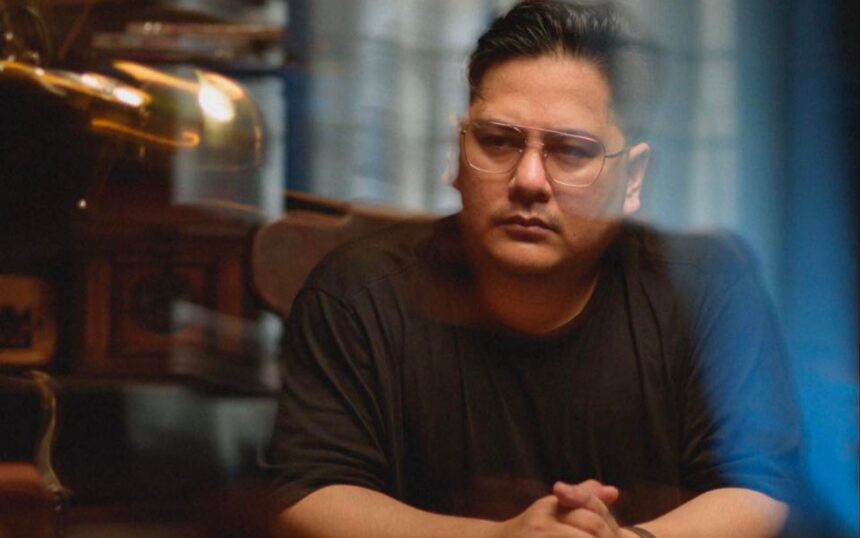…it’s not your job as an artist to decide whether or not you’re ready to become an artist (or a writer, or a director, or a playwright). Your only job is to create. Let other people decide whether what you create is good or not. Your job is simply to create.
Welcome to Hurwitz.TV’s Directors Interview Series, where we chat with some of the most influential filmmakers from all over the world.
In this series, you’ll have the opportunity to gain profound insights from the minds and creative journeys of these cinematic storytellers. Our goal is to explore the art of filmmaking, discover the inspirations and motivations that drive these directors, and delve into the captivating stories behind their remarkable works. From seasoned veterans to emerging talents, we talk about their artistic influences, memorable experiences, and the challenges they’ve faced along the way.
Today, I am joined by Filipino director and screenwriter Dustin Celestino, known for his critically acclaimed films ‘Utopia’ (2019) and ‘Ang Duyan ng Magiting’ (2023). In this insightful conversation, we talked about the crossroads he faced before finally deciding to become a filmmaker, his unconventional way of making movies, creative aspirations, and his most recent Cinemalaya win.

Dennis: It’s great to have you here, Dustin! To kick things off, can you share the story of you wanting and deciding to become a filmmaker? What drove you to pursue this career path?
Dustin: My career as a full-time writer came as a result of what I believe to be a midlife crisis. Haha! I was working as the creative director of a communications agency in Ortigas owned by my best friend. However, I was struggling with the daily commute as I was living in Fairview at the time, and this was also the height of EJKs, and I wasn’t doing well, mentally. On the day of my birthday, I decided to resign, “to give myself a year to chase my dream of making even just one movie” as a gift to myself.
This was around October, and I didn’t know where to start. From October to December, I think I just wallowed in depression. Before the year ended, I think I may have seen an ad that there was a call for entries for the Palanca Awards.
So, on the first day of 2017, I made it a New Year’s resolution to write every day for the next hundred days, to gather submissions for the Palanca Awards. Over the next three months, I was writing every day.
I completed 9 entries: a full-length play in Filipino, a one-act play in Filipino, a full-length play in English, a one-act play in English, a screenplay, a short story in Filipino, a short story in English, an essay in English, and a short story for children in English.
Two of those entries won first prize in the Palanca Awards: “The Story of this Father” and “Ang Pangahas na si Pepe Rodriguez.”
The screenplay I submitted did not win, but was shortlisted in the CineFilipino Film Festival; and later became the film, “General Admission” (2021).
The short story in Filipino, “Ang Tagapagligtas,” later became my directorial debut film, “Utopia” (2019).
The short story in English was revised and developed to later become what I think is my most well-known play in the Virgin Labfest, “Fermata” (2022-2023).
So, 5 out of the 9 works I completed over that 3-month period established my reputation as an up-and-coming writer.
Dennis: What was the greatest piece of advice given by a mentor that shaped the artist that you are today?
Dustin: I can’t remember who said it, but I’m sure I heard it somewhere that it’s not your job as an artist to decide whether or not you’re ready to become an artist (or a writer, or a director, or a playwright). Your only job is to create. Let other people decide whether what you create is good or not. Your job is simply to create.
That’s probably the most liberating realization I had. Before, I didn’t even try to join festivals or contests, because I didn’t think I was “good enough.” That quote reminds me that it’s not my job “to wonder if I’m good enough.” My job is to create and share what I’ve created.
But, of course, I’ve had plenty of mentorship from Rody Vera, in particular, and the writing group “Writers Bloc.” Since 2018, they’ve probably read and critiqued at least 70% of everything I’ve written, and I get plenty of advice about art and life.
I’ve also had the privilege to attend workshops held by Sir Ricky Lee and Sir Bing Lao.
Sir Ricky Lee, especially, has been very supportive when it came to our Cinemalaya film, “Ang Duyan ng Magiting.” His feedback was what gave us the courage to do the film despite having limited resources (we only had enough funding to shoot for 5 days).
When Sir Ricky read the screenplay, he sent me a message. He said:
“Hi Dustin! This is Ricky Lee. There’s a breathlessness to the beauty of your script. It’s really good! You’re really good! There are a few portions where I think the clash and discourse of theater and film elements can still be improved. This is not just filmed theater after all, so it’s all right. So it can still be pushed.”
This was very encouraging and made me think, “If there’s one movie in my lifetime that I had to make, this has to be it.” I also took Sir Ricky’s advice and implemented some surrealist visual elements into the film.
Lastly, my “writing philosophy” comes from Sir Rody Vera. I once asked him how he determines whether something is good or not. Our conversation went something like this:
“Sir Rody, how can you tell if a play is good?”
“If you like it, it’s great. If you don’t like it, it’s ugly…”
“What if I like the ugly one?”
“Oh, develop your taste so you don’t like the ugly one.”
It’s so simple, but it made me realize that there are no specific rules or guides you can follow to become a better artist. What you have to do is develop a keen taste for quality – a high aesthetic standard – and apply that objectively and unremittingly to your own works.

Dennis: Which movies and filmmakers inspire you the most?
Dustin: To name a few movies, here are some of my favorites: Norte, Honor thy Father, On the Job 1 & 2, Apocalypse Child, etc.
Filmmakers who inspire me include Lav Diaz, Erik Matti, and others who compete abroad.
Not gonna lie, I have a bias for Filipino films that are done well because Filipinos work with minimal resources and at a much faster pace.
To provide some context:
“Oppenheimer” was shot in 55 days with a budget of over $100,000,000.
“Ang Duyan ng Magiting” was shot in 5 days for $60,000.
If “Oppenheimer” was made with a budget that is almost 2000 times the budget we had, but I would argue that his film is not 2000 times better than our film.
In 2016, Lav Diaz won the “Golden Lion” over Hollywood films “Nocturnal Animals” and “La La Land.” The mere fact that we can compete in the same festivals – and win sometimes – is a true testament to Filipino talent. The economic gap between our industries is bridged only by the excessive talent of Filipino filmmakers.
It’s such a tragedy that most Filipinos don’t know how brilliant our filmmakers are because we’re either asked to make material that panders to an easygoing audience or forced to compromise our vision because of a lack of resources.
Dennis: What are the most challenging and rewarding aspects of making a movie?
Dustin: The most challenging aspect is funding, and I think anyone who works in the local industry will have a similar answer.
The most rewarding, for me, is to be able to make a film that is appreciated by fellow activists and can be used as a tool for social change.
My proudest moment for “Ang Duyan ng Magiting” came long after the trophy and the positive feedback we received; it came when human rights advocates and NGOs started approaching us because they wanted to screen our film in more regions, schools, etc. because they believe that we made something important to the Filipino.
Dennis: Just recently, your film “Ang Duyan ng Magiting” won the Special Jury Prize at the 19th Cinemalaya Film Festival. How was that experience? And what does it mean for you that your film emotionally resonated with people?
Dustin: To be honest, it was the most difficult thing I have done in my life. It came with a lot of anxiety, too, because we had to raise the money we spent on the film, and I would often wonder if I wasted my – and my mom’s – life savings on a vanity project.
These doubts were laid to rest when we started speaking with activists I respect and admire, and they were thanking us for making an important film.
The film itself was never meant to be a social prescription. As it was mentioned – repeatedly – in my other interviews as well as the director’s statement, “The film is a contemplation on the agony of an entire nation.” It is an invitation to view the tragedy of our nation – our people – and to begin to teach ourselves how to empathize again, especially after six years of dehumanizing hatred and violence.
Admittedly, the film doesn’t resonate with everyone (some even call it “copaganda”), but it resonates with the right people: activists, educators, social workers, and Martial Law survivors.

Dennis: What was your biggest “is this really happening” moment of your career?
Dustin: I think that happened in 2019 when I won my first jury prize trophy for “Utopia” (2019). It felt like a validation of my choices as an artist.
I know that I make unconventional movies. My films highlight dialogue, actor performance, and story. Some would argue that my films are not “cinematic” enough. But I have my concept of what “cinema” is supposed to be, based on European traditions and influences, particularly Ingmar Bergman.
Bergman argues that the most cinematic image is a person’s face, therefore the most “cinematic” shot is the close-up. I agree.
If we had the time and resources to shoot a static wide shot of a skyline or a moving shot of choreographed blocking, I’d do it. But if I had to shoot just one shot to achieve an intended emotional effect, I’d just shoot my actor’s face.
Dennis: Lastly, name a filmmaker or an actor you would love to collaborate with in the future and why.
Dustin: For actors, I would love to work with Mylene Dizon and John Lloyd Cruz, because I have a finished screenplay that I wrote with them in mind.
For filmmakers, I have dream collaborators that I would like to work with, at least, once in my lifetime.
Here’s my bucket list:
- Production Designers, Benjamin Padero and Carlo Tabije, aka. “BenCar.” Because I’ve heard them explain their vision and how to execute it in one of the meetings my partner was on. Their knowledge for scene mounting and execution were so impressive.
- Cinematographers, Neil Daza. Because he’s one of the best cinematographers in the Philippines and his Zen-like attitude is contagious. I want to be like him, like, as a person.
- Sound Designer, Corinne De San Jose. Corinne is also a sound installation artist, so her knowledge and experience with the element I am least familiar with would teach me a lot, I think.
- Editors, Ben Tolentino and Lawrence Ang. Again, best the industry could offer at the moment.
- Musician, Teresa Barrozo. I’ve been following Teresa for a while now and her film music is always amazing and original.




